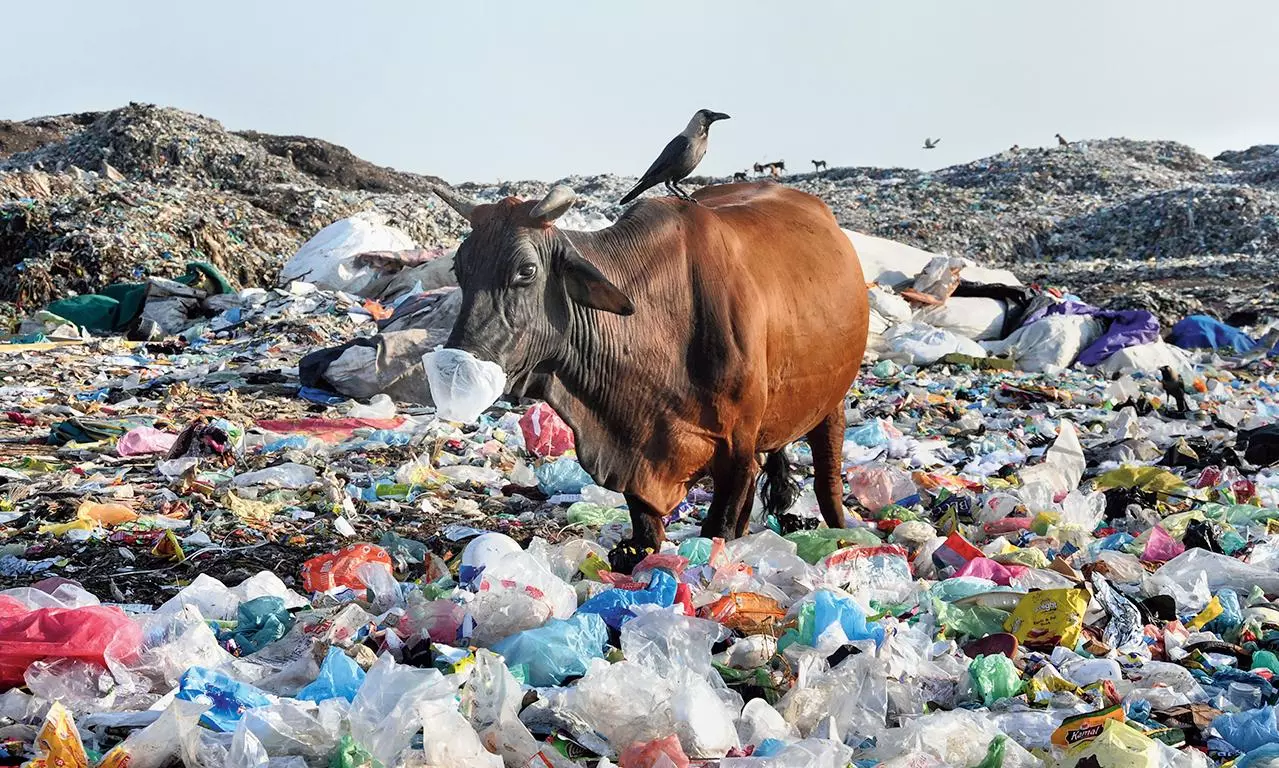

A cow eats plastic at a garbage dump in Amritsar/PTI File Photo
55 percent of the world's total plastic waste produced by 20 companies, Study
text_fieldsFrom face masks to plastic bags and bottles, plastic waste has contributed largely to environmental degradation and climate change as it accumulates the most in sea, posing a serious threat to aquatic animals. In 2019 alone, the world dumped approximately 13 crore metric tonnes of single-use plastic waste into sea and possible land areas.
More than half of the plastic waste generated globally has been accounted for by 20 companies, a new study has revealed. The Plastic Waste Makers Index shows that the responsibility of 55 percent of the total plastic waste production falls onto 20 mass polymer producers.
Oil giant Exxon Mobil and chemicals giant Dow, both US-based, are the topmost single-use polymer waste producers with China-based Sinopec as the third largest. Together, these 3 companies are estimated to generate around 16 percent of the world's polymer waste, according to the report released by Wood Mackenzie, the London School of Economics and Stockholm Environment Institute.
Out of the top 20, 11, 4, 3, 1 and 1 companies are based in Asia, Europe, North America, Latin America and Middle east, respectively, with a huge mass of production aided by the world's leading banking institutions.
Fossil fuels are mainly used in the manufacture of single-use plastics, which are the hardest to recycle and don't peril easily. According to stats, around 10 -15 percent plastics are recycled globally every year. However, polymer production is estimated to increase by 30 percent over the next five years.
Single-use plastics containing chemical additives such as plasticisers have been found to be linked to a range of reproductive health problems in humans, the findings show. By 2050, if the single-use plastic production does not go down from current rates, it could constitute an alarming rate of 5 - 10 percent of the world's greenhouse gas emissions.
The threat is doubled as companies turn over to plastic manufacture from petrol-diesel production as electric vehicles slowly take up the lanes.






















